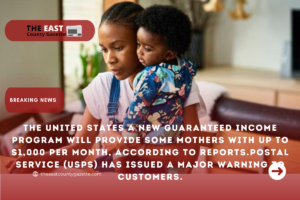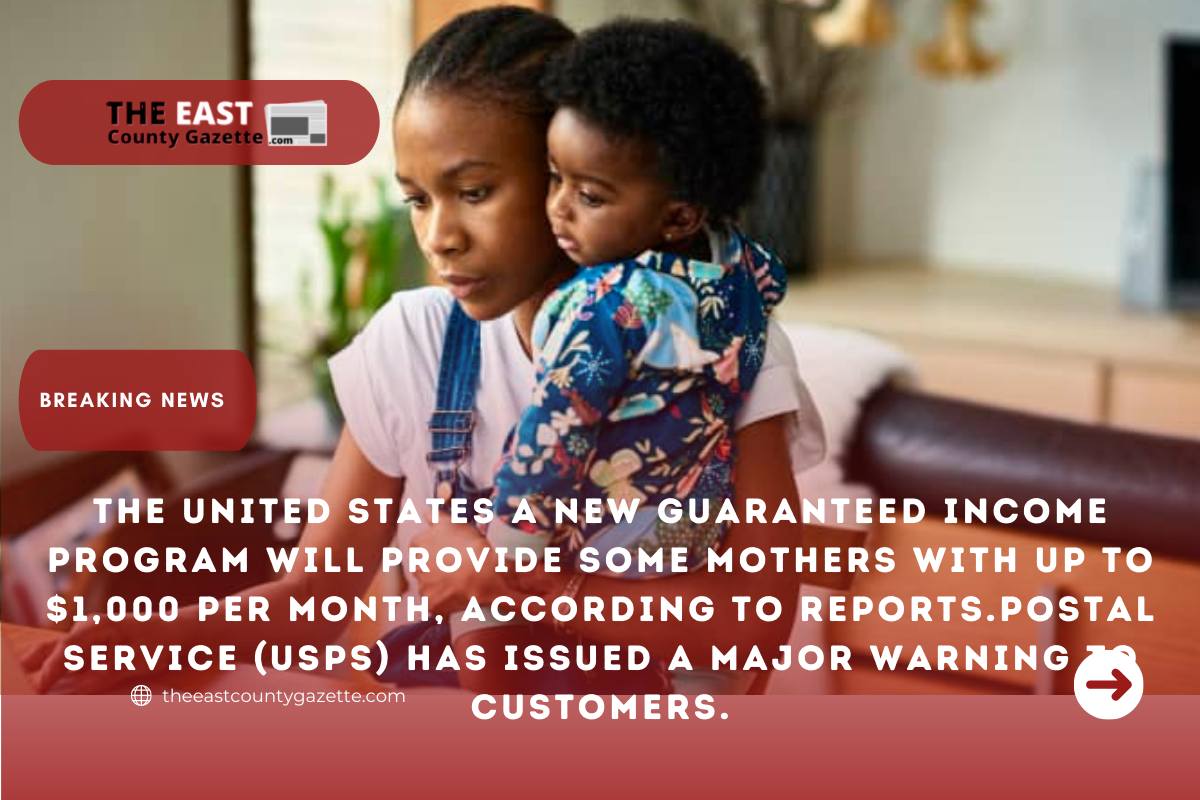Due to the implementation of a new guaranteed income program in New York City, certain mothers stand to benefit significantly from an increase in their income.
As it is known, the Bridge Project provides $500 or $1,000 per month for three years to mothers of infants and expectant mothers who are participating in the program.

Beginning in July of last year, the first group of 100 mothers began receiving payments. A little over half of those who took part are Black, and half are Latinx. One out of every five of them is an undocumented immigrant. They live in the Manhattan boroughs of Central Harlem, Inwood, and Washington Heights, among other places.
Read More: IRS Indicates Two $3,600 Payments to Be Made in February
It is anticipated that the project will begin recruiting the second group of 500 pregnant first-time mothers in April, this time focusing on the East Harlem neighborhood of Manhattan as well as the Central and South Bronx neighborhoods.
The launch of the program comes at a time when the United States is experimenting with new ways to distribute money to Americans in the wake of the Covid-19 pandemic. Three rounds of one-time federal stimulus checks were included in this total.
This included child tax credit payments of up to $300 per child, which were made on a monthly basis, though the checks were no longer valid as of this month.
According to a study conducted by Columbia University, nearly 4 million children could be forced into poverty this month if they do not receive their monthly child tax credit payments.
Many cities across the United States are also experimenting with guaranteed income projects of their own, with the goal of assisting low-income residents in gaining financial security. The Bridge Project is the first of its kind to take aim at the city of New York.
The Monarch Foundation, a private family foundation run by Holly Fogle, a social entrepreneur, and her husband, venture capitalist Jeff Lieberman, handles the project’s conception and conception is the Monarch Foundation.
The project has received more than $16 million in funding from the foundation. In collaboration with the Center for Guaranteed Income Research at the University of Pennsylvania, it will be investigated as a randomized controlled trial in the near future.
It was Fogle’s work with Nido de Esperanza, a non-profit organization that aims to help break the cycle of poverty by assisting children in their first 1,000 days of life, that served as inspiration for the project.
It has been proven through research from the Harvard Center for the Developing Child and other institutions, she explained, that the impact of a child’s early years can have a significant impact on his or her life.
According to Fogle, it was “interesting to hear what the academics were saying and how little of it was translating into practical life.”
Early results of the Bridge Project’s work have shown that additional funding has helped to improve the lives of the mothers, whether it is by assisting them in paying their rent, keeping their phone service operational, or paying for day-to-day necessities such as food or a high chair.
We saw how clever the mothers were in terms of what they did with the information, according to Fogle. “We felt that putting our faith in them to take care of themselves and their families was a fantastic solution.”
In an interview with the New York Times, Daniela Gutierrez, 28, of Harlem, admitted that she was surprised to learn about the program after a social worker recommended that she apply. she explained. “I didn’t know whether or not it was a trick.”
Gutierrez, a single mother, was accepted as a member of the program’s first cohort of mothers when it began in July of this year. Each month, she has been receiving $1,000, which she considers to be “life-saving money.”
Because Gutierrez’s son is only 7 months old, he missed the cutoff for eligibility for the monthly child tax credit payments because he was born after the deadline. Meanwhile, Gutierrez’s current position as a part-time lecturer at a local university is unfulfilling.
While she has been able to work from home during the pandemic, she may soon be required to return to the office, at which point she will be required to pay for child care.
Read More: IRS Set to Send Next Wave of Stimulus Payments by Check or Debit Card
With the monthly payment, Gutierrez now has a source of income she can count on. She claims that she is not as stressed as she would be if she did not have it. In addition, she now has the financial means to pay for her rent, internet service, and the items she and her baby require, such as diapers, wipes, and clothing.
She hopes to be able to save money for her son’s college education once she finds full-time employment.
“It’s made me a better mother,” Gutierrez said of the experience.
In a time when federal lawmakers on Capitol Hill are debating whether to provide additional enhanced monthly child tax credit payments to families, Lieberman expressed hope that the project will demonstrate that providing assistance to families with young children is not a partisan issue.
The senator stated that “as long as we see success in terms of outcomes, our absolute intent is to continue expanding.”
“The real question is how do we bring in others who are like-minded and, ultimately, how do we begin to think about policy?” says the author. He explained.

